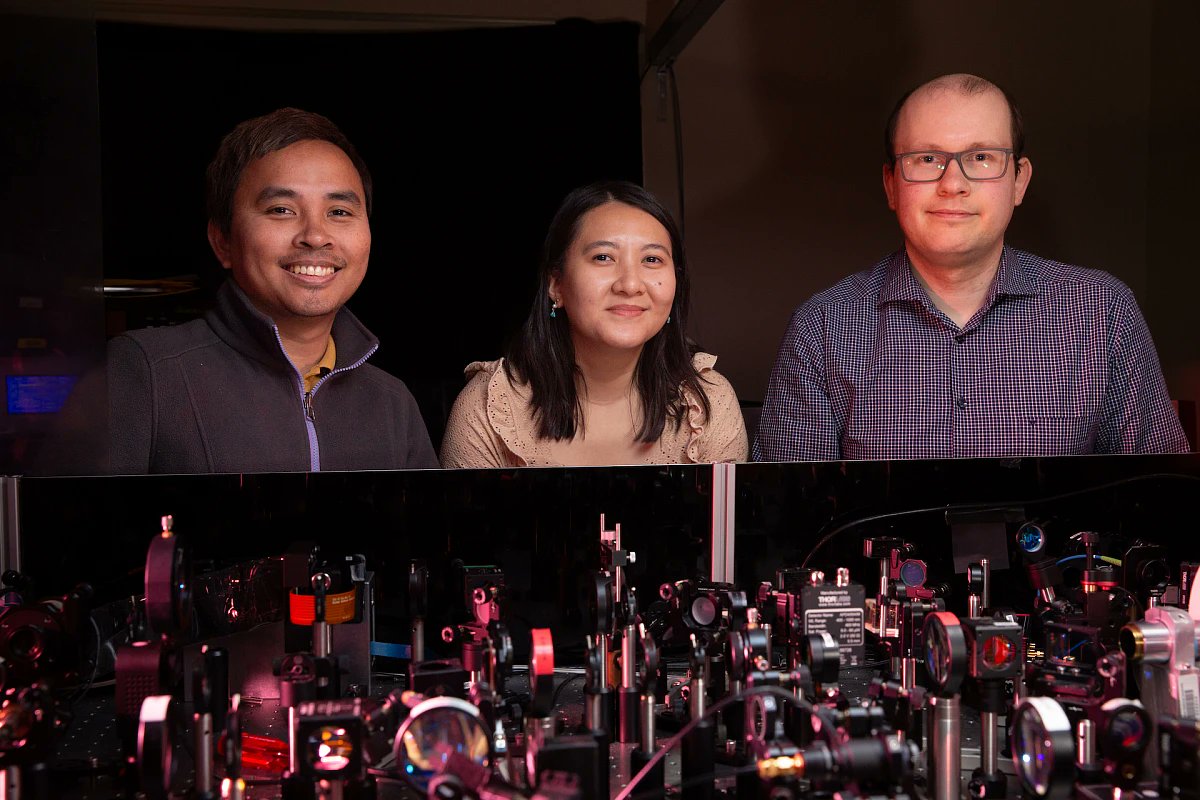
FLEET Centre
@fleetcentre
The ARC Centre of Excellence in Future Low-Energy Electronics Technologies—developing a new generation of ultra-low energy devices
ID: 825882442611318784
http://fleet.org.au 30-01-2017 01:44:53
4,4K Tweet
1,1K Followers
652 Following


A Monash University-led team has demonstrated that the breakdown in topological protection in quantum insulators is caused by magnetic disorder, paving a clear research pathway towards use of these materials in future, low-energy topological electronics. Read fleet.org.au/blog/overcomin…


Team of FLEET Monash Science researchers uncovered effects of interactions between exciton-polaritons and their associated dark excitonic reservoir. fleet.org.au/blog/dark-exci… Controllable superfluid polaritons have potential application in next-gen, light-based computing.


New open-source software developed by Julian Ceddia at Monash Research aims to significantly streamline the study of materials using Scanning Tunnelling Microscopes Read more at fleet.org.au/blog/scanbot-s…


Fantastic article and worth to read. Thanks to the journalist. TechinLeap FLEET Centre Monash Engineering techinleap.com/the-topologica…

Polariton laser displays surprising spectral purity, could boost precision laser technology to another level. Light/matter particles (exciton-polaritons) form a quantum BEC, yielding a surprisingly-pure 'polariton laser'. More at PhysicsANU physics.anu.edu.au/news_events/?N…


Examining spin gapless semiconductors (SGSs), a fascinating class of quantum materials with potential application in low-energy electronics. A review study by Muhammad Nadeem and Xiaolin Wang UOW Research fleet.org.au/blog/spin-gapl…


Direct nm-scale imaging of surface of a Ga-Cu mass RMIT University using Transmission Electron Microscopy to penetrate the liquid metal bath reveals surface of 'solid' alloy fluctuating between solid and liquid phase fleet.org.au/blog/surfaces-…


A Monash Science team demonstrated that the breakdown in topological protection in quantum insulators is caused by magnetic disorder, paving a clear research pathway towards use of these materials in future, low-energy topological electronics. Read fleet.org.au/blog/overcomin…


Materials researchers at Monash University have revealed an elegant new, widely-applicable theoretical approach towards characterising intrinsic magnetic second-order topological insulators, with potential use in spintronics. Read more at: fleet.org.au/blog/fleet-res…


Team of FLEET Monash Science researchers uncovered effects of interactions between exciton-polaritons and their associated dark excitonic reservoir. Controllable superfluid polaritons have potential application in next-gen, light-based computing. fleet.org.au/blog/dark-exci…


Open-source software developed by Julian Ceddia at Monash Research aims to significantly streamline the study of materials using Scanning Tunnelling Microscopes Read more at fleet.org.au/blog/scanbot-s…


Direct nm-scale imaging of surface of a Ga-Cu mass RMIT University using Transmission Electron Microscopy to penetrate the liquid metal bath reveals surface of 'solid' alloy fluctuating between solid and liquid phase fleet.org.au/blog/surfaces-…

Examining spin gapless semiconductors (SGSs), a fascinating class of quantum materials with potential application in low-energy electronics. A review study by Muhammad Nadeem and Xiaolin Wang UOW Research fleet.org.au/blog/spin-gapl…




